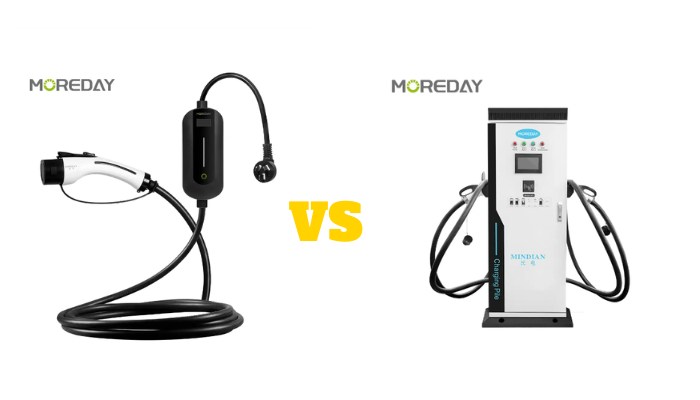J1772 and the combined charging system (CCS) connector represent two key standards in electric vehicle technology. While J1772 is primarily used for Level 1 and Level 2 charging, providing up to 19.2 kW of power, CCS combines these capabilities and adds DC fast charging, supporting higher power levels and faster charging times.
This distinction is not only technical but also impacts the EV user experience and infrastructure development, setting the stage for a detailed discussion of their respective roles in the EV market.
Table of Contents
ToggleWhat is J1772?

The J1772 standard, also known as SAE J1772 or IEC Type 1, is the North American specification for electric vehicle electrical connectors. It facilitates the charging of electric vehicles by defining the plug and receptacle design, electrical protocols, and safety features required to efficiently charge electric vehicles.
The standard supports charging levels up to Level 2, which can deliver up to 19.2 kW at 240 volts, allowing for faster charging times compared to a standard household outlet.
Benefits of J1772
Wide Compatibility: J1772 is the standard plug type for electric vehicles in North America, making it widely compatible with a wide range of electric vehicle models from a variety of manufacturers, including Tesla (with adapter), Chevrolet, Nissan, and Ford.
Charging Versatility: It supports both Level 1 and Level 2 charging. Level 1 charging can be done through a standard 120V outlet, suitable for overnight home charging.
Safety Features: The J1772 standard includes safety protocols, such as ensuring that charging does not begin until the plug is securely connected and communication is established between the car and the charging device.
What is CCS?

Combined Charging System (CCS) is a technology that integrates AC and DC charging capabilities into a single connector. CCS supports higher power levels than many other standards, enabling faster DC charging, with charging power up to 350 kW, which can charge a large number of batteries in a few minutes.
Widely adopted in Europe and North America, the system is compatible with a wide range of electric vehicles from different manufacturers, thus enhancing the infrastructure and accessibility of electric vehicle fast charging.
Benefits of CCS
Fast Charging: CCS supports both AC and high-speed DC charging, supporting up to 350 kW, enabling rapid battery charging and significantly reducing waiting times compared to other charging standards.
Widely Adopted: It is widely adopted in Europe and North America and is supported by numerous automakers including BMW, Volkswagen, Ford, and General Motors. This widespread support ensures that users have access to a growing network of compatible fast-charging stations.
What Is the Difference Between J1772 and CCS?

There are some differences between J1772 and CCS in charging speed and compatibility. Understand these differences and choose the charger that suits you.
1. Charging Function
J1772: Mainly used for AC charging, supporting Level 1 and Level 2 charging up to 19.2 kW.
CCS: Supports AC and DC fast charging, with a DC charging capacity of up to 350 kW for faster charging times.
2. Plug Design
J1772: With a five-pin design, it is widely used in a variety of electric vehicles in North America.
CCS: Integrates the AC charging function of J1772 with two additional DC charging pins for fast charging, making it a more versatile connector.
3. Price Cost
J1772: J1772 infrastructure and chargers are generally less expensive, making it an affordable option for Level 1 and Level 2 charging.
CCS: CCS uses more advanced technology and supports faster charging (DC) at higher power. Due to these advanced features, the cost of CCS-compatible chargers and related infrastructure will also be higher.
4. Vehicle Compatibility
J1772: Compatible with a variety of electric vehicles, especially those in North America.
CCS: Adopted by a wider range of manufacturers worldwide and supports fast charging, a critical feature for newer EV models and long-distance travel.
5. Regional Adoption
J1772: Used primarily in North America and is the standard choice for many US EVs.
CCS: More widely accepted in Europe and North America, with broader international support.
These differences highlight the different capabilities and regional preferences between the two charging systems, with CCS being a more flexible system capable of higher power throughput, while J1772 is limited to slower AC charging scenarios.
How do I Buy the Right Charger?
When choosing the right charger for your electric vehicle, consider the following factors to decide whether to choose J1772 or CCS:
- Vehicle compatibility: Make sure the charger matches the connector type of your vehicle. J1772 is the standard for Level 1 and Level 2 charging, while CCS is for fast charging.
- Charging needs: Evaluate how quickly you need to charge your vehicle. If you need to charge quickly regularly, CCS may be a better fit.
- Installation location: Consider where the charger will be installed (at home or in a public place) and make sure it supports the power output and safety features you need.
- Benefits: CCS chargers have the advantage of fast charging capabilities, which makes CCS chargers a future-proof investment.
Choosing a charger that meets these aspects will help ensure you have an efficient and effective charging solution for your electric vehicle.
Summary
When choosing between J1772 and CCS, it usually comes down to the vehicle you drive and your charging needs. J1772 connectors are ideal for Level 1 and Level 2 charging and are a solid choice for home and public charging stations. However, if you want to charge faster on the go or at a DC fast charging station, CCS connectors offer the benefits of both AC and DC charging.
As electric vehicles continue to evolve, so will the charging infrastructure. By understanding the differences between J1772 and CCS, you can ensure your electric vehicle is always ready to go, whether you charge at home or take advantage of fast charging on the go.
Whether you are installing a charger for your home or looking for bulk purchases for a commercial project, MOREDAY can provide you with a tailored charging solution. MOREDAY provides efficient and reliable home chargers to meet your daily driving needs and also provides comprehensive support for the commercial sector to ensure that your project has a greater advantage in sustainability. MOREDAY’s products perform equally well in retail and wholesale, and we can provide you with flexible pricing and fast delivery services no matter how large the demand is.
Learn more now and choose MOREDAY to make future travel more convenient and environmentally friendly!
FAQ
1. Can You Charge a Type 2 Car with CCS?
Yes, you can charge a Type 2 car with CCS, but only for vehicles that support the CCS Combo 2 connector. The Type 2 connector is used for AC charging in Europe, while CCS Combo 2 adds two extra pins for DC fast charging, allowing for faster charging. If your Type 2 car is equipped with a CCS Combo 2 port, it can charge using both AC and DC chargers.
2. Is J1772 a Fast Charger?
No, the J1772 connector itself is not a fast charger. It is typically used for Level 1 (120V) and Level 2 (240V) AC charging, which are slower compared to DC fast charging.
Level 2 charging with J1772 can provide speeds of about 10-30 miles per hour, depending on the vehicle and charging equipment. For faster charging, such as DC fast charging, vehicles use connectors like CCS or CHAdeMO.
3. Which Cars Use CCS?
Many electric vehicles (EVs) use the CCS (Combined Charging System) connector for fast charging, especially in Europe and North America. Some popular models that use CCS include:
- Tesla (in Europe with an adapter or CCS-enabled models like the Model 3 and Model Y)
- Volkswagen ID.4 and ID.3
- BMW i3, i4, iX, and i7
- Ford Mustang Mach-E and F-150 Lightning
- Audi e-tron series
- Hyundai Ioniq 5 and Kona Electric
- Kia EV6
- Porsche Taycan
- Jaguar I-Pace
- Chevrolet Bolt (2022 models and later)
CCS is becoming the standard for fast charging in many EVs, especially for those designed for long-distance travel.
4. Is J1772 the Same as CCS?
No, J1772 and CCS are not the same, but they are related. The J1772 connector is primarily used for Level 1 and Level 2 AC charging, commonly found in home and public chargers for electric vehicles (EVs).
CCS, or Combined Charging System, builds on the J1772 by adding two additional pins for DC fast charging, allowing it to handle both AC and DC charging through one connector. Essentially, CCS combines the J1772 plug with DC charging capabilities for faster charging at higher power levels.
Related reading: How much to install an EV charger at home

